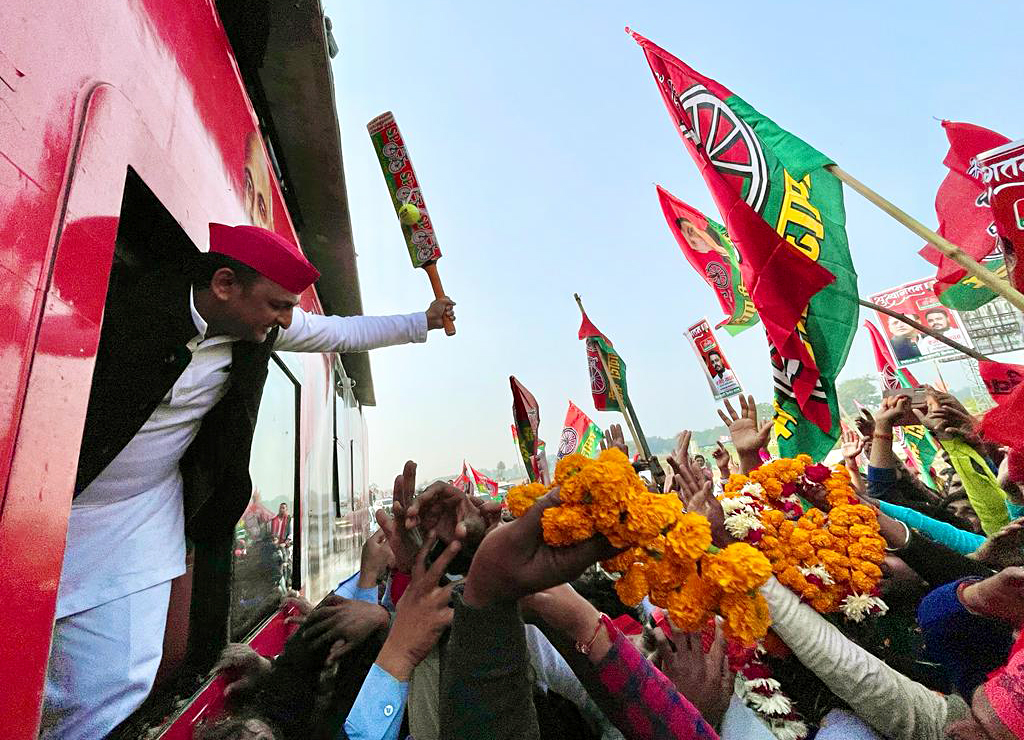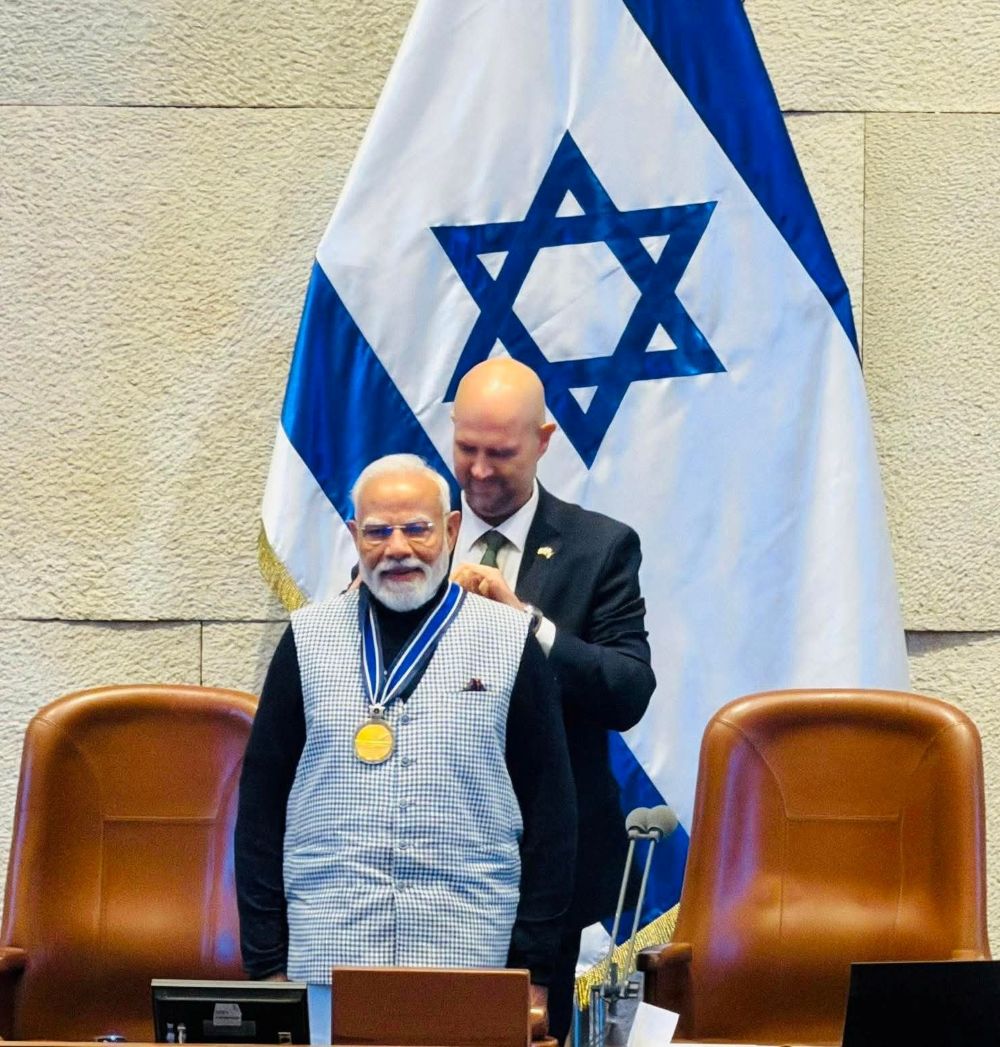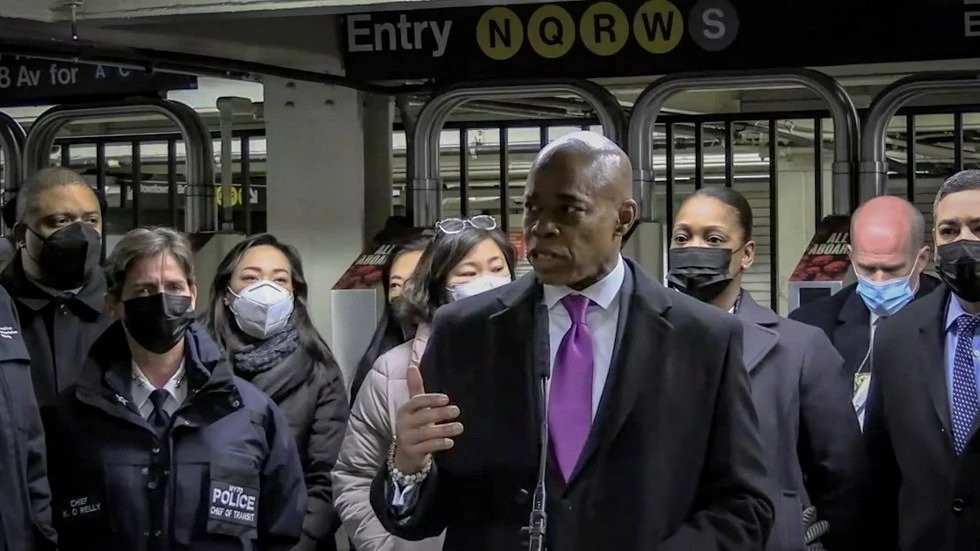Views and opinions from the top commentators in Indian media
Akhilesh’s gambit of playing up the caste census demand was deflected by BJP with a major Union Cabinet reshuffle last year in which 27 OBC and 12 Dalit MPs benefited, with strong UP representation. The extension of OBC reservation to the NEET all-India quota ensued. With 303 MLAs, BJP can shrug off the Maurya loss but ticket distributions can trigger more showdowns given the party’s track record of denying seats to unpopular incumbents. But BJP will be comforted by the unwieldy ticket demands Akhilesh will now face, having embraced a large number of allies. However, many of UP’s smaller outfits often contest under big parties’ symbols, which may mitigate SP’s ally problems.
With campaigning on pause and ticket distribution gaining pace, UP parties will have a tough time controlling the shrill caste messaging from malcontents. Despite the flailing OBC quota sub-categorization experiment and political representation struggling to keep every group happy, most bets seem to be on social engineering, not development. No surprise then that Maurya’s political life could so smoothly go from BSP to BJP to SP.
— Editorial, The Times of India
China in the neighborhood
The visit by Chinese Foreign Minister Wang Yi to Sri Lanka as part of a five-nation swing-through, that also covered three African nations and the Maldives, has highlighted Beijing’s relentless drive for influence over the Indian Ocean region. In Colombo, Wang spoke of creating a forum for Indian Ocean “island countries” that shared “similar experiences and common needs” and development goals to strengthen “mutually beneficial co-operation”.
Such fora already exist. China is a dialogue partner of the Indian Ocean Rim Association, along with Russia, the US and several European countries. Since 2008, an Indian Ocean Navies Symposium brings together 24 countries in the region, in which, too, China, which is not an Indian Ocean country, is one among several observers. It is significant that Beijing, which has pumped in so much money into many of these countries, but by virtue of its geography, is not a full member in any of the region’s groupings, now believes there should be another forum representing the region. Wang’s proposal, which bears a curious resemblance to the Security and Growth for All in the Region (SAGAR) doctrine articulated by Prime Minister Narendra Modi in his first term, during a visit to Mauritius in 2015, is a sign that the India-China rivalry in the maritime sphere is set to intensify.
— Editorial, The Indian Express
Save the farmers
India’s road to substantive agrarian reforms is long and arduous, but in the interim, to soften the current impasse with its largest political constituent — the farmers — the government should guarantee by statute, for a minimum period of 10-20 years, that crops such as nuts, pulses and oilseeds would be procured using the Swaminathan formula; amend the NFSA to include such crops as scheduled entitlement for targeted households at a subsidized rate; devolve greater procurement powers to states for localized procurement of dairy, poultry and horticulture products to strengthen the nutritional output of MDM and anganwadi systems; give independence and statutory teeth to the Commission for Agricultural Costs & Prices with the mandate to implement a dynamic crop incentivization pricing based on the government’s long-term procurement goals; mandate that non-governmental bulk purchase of listed crops beyond a certain threshold cannot be below MSP.
–Kabeer Shrivastva, The Telegraph
UAE money in Kashmir
The United Arab Emirates was one of the first countries that had responded with understanding to India’s decision to scrap Article 370 of the Constitution in 2019. On the very second day of India’s move, the UAE ambassador to India, Dr Al Banna, told Gulf News that from his understanding, the reorganization of states was not a unique incident in the history of independent India and that it was mainly aimed at reducing regional disparity and improving efficiency. He viewed the decision related to the state of Jammu and Kashmir as an “internal matter” as stipulated by the Indian Constitution. This was at a time when Pakistan had recalled its ambassador back from India, had downgraded diplomatic and commercial ties with India and was frantically trying to drum up international opinion against India’s decision.
It is also reflective of the shift in the UAE’s foreign policy, which now positions itself as a bridge-builder and peacemaker in the region.
— Aditi Bhaduri, The Quint
Every week, we look at what the top commentators and opinion writers in the Indian media are talking about and bring to you a slice of their opinions and comments


























